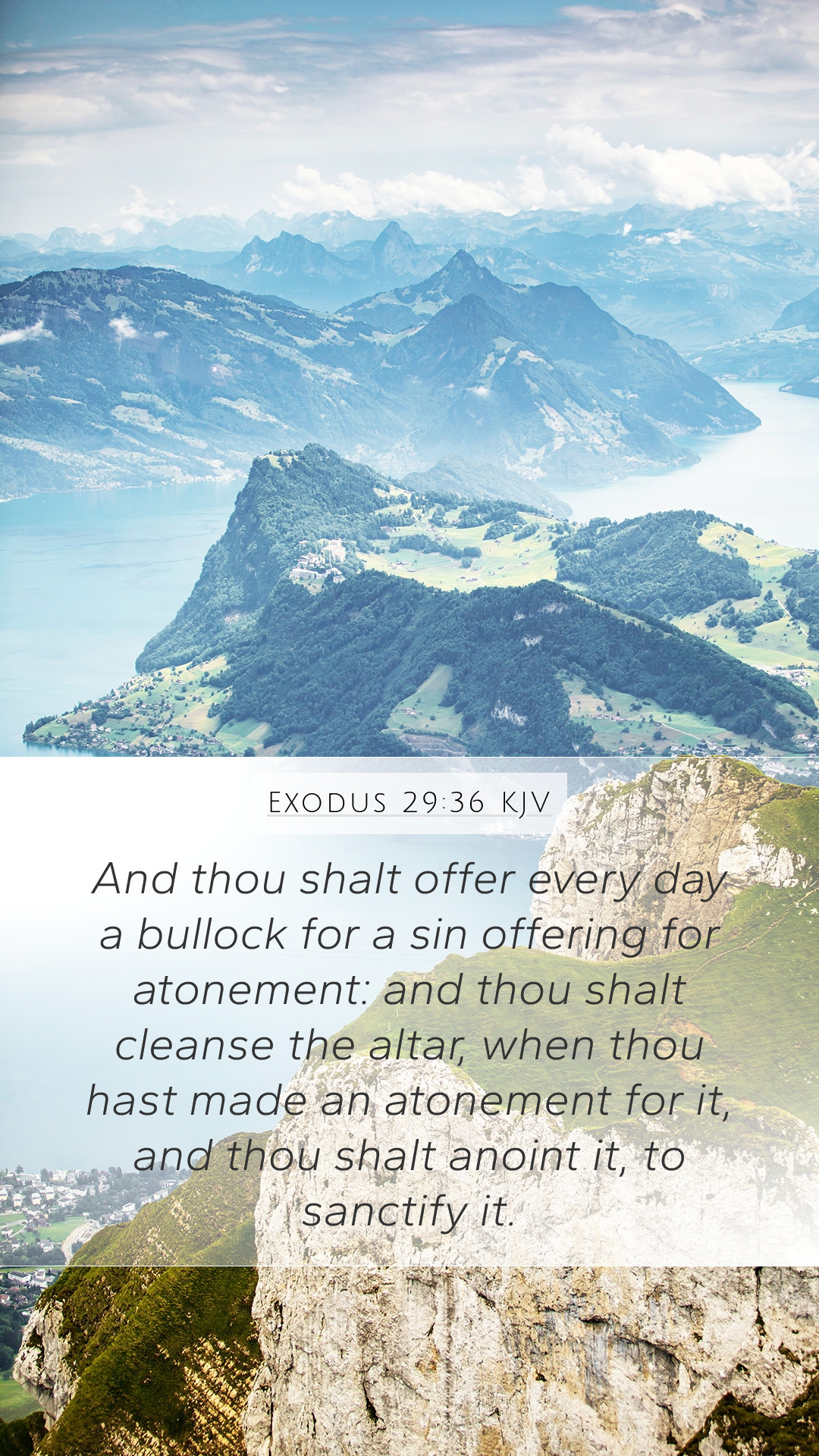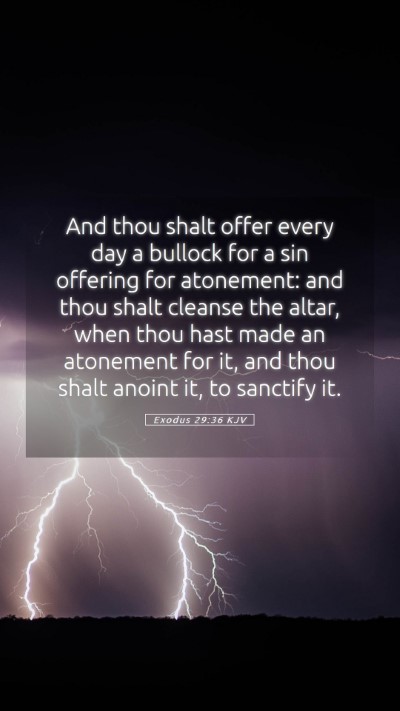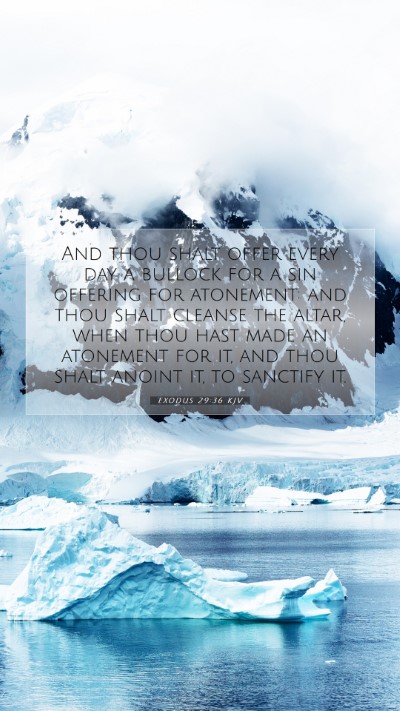Bible Verse Meaning and Commentary on Exodus 29:36
Exodus 29:36: "And thou shalt offer every day a bullock for a sin offering for atonement: and thou shalt cleanse the altar, when thou hast made an atonement for it, and thou shalt anoint it, to sanctify it."
This verse is part of the instructions God gives to Moses regarding the consecration of Aaron and his sons as priests. The focus here is on the sacrificial system and the importance of atonement in the tabernacle worship. Understanding this verse in depth involves looking at its significance within the broader context of sacrificial practices in Israelite worship.
Summary of Insights from Public Domain Commentaries
-
Matthew Henry's Commentary:
Henry emphasizes the seriousness of sin and the necessity of atonement. He points out that the daily sacrifice underscores God's desire for His people to maintain a pure relationship with Him. The use of a bullock signifies the gravity of the sin being atoned for, and the continual nature of this offering reflects ongoing human sinfulness.
-
Albert Barnes' Notes:
Barnes notes that the act of atonement is both a ritual and a divine requirement. This practice is established not merely as a tradition but as a means for Israel to be reconciled with God. By cleansing and anointing the altar, it is set apart for God's holy use, symbolizing purity and devotion in the worship context.
-
Adam Clarke's Commentary:
Clarke explains the symbolism of the daily offerings, highlighting that they serve both as a reminder of human sin and the need for divine grace. He also discusses the significance of anointing the altar, interpreting it as a dedication of the space for sacred worship and a sign that God’s presence blesses the site of sacrifice.
Understanding the Verse in Context
The sacrificial system in the Old Testament is a critical element of biblical atonement theology. In Exodus 29:36, the instruction to offer a bullock daily reinforces the notion that atonement is needed regularly, in acknowledgement of the persistent human inclination towards sin. The act of cleansing the altar is equally important, symbolically restoring it for the purpose of holy interactions with God.
As we delve into biblical exegesis, we see the layers of meaning in this verse. It invites deeper reflection on how such ancient practices might inform contemporary understandings of sin, repentance, and the need for grace in the believer's life. This recurrence of sacrifice signifies the ongoing relationship between God and His people. It is through the lens of Bible study insights that we appreciate the foreshadowing of ultimate atonement found in Christ’s sacrifice.
Application of Exodus 29:36 in Daily Life
This verse invites believers today to consider the importance of confession and atonement in their spiritual practices. It encourages a routine acknowledgement of one’s shortcomings and the grace that God provides. As members of a bible study group or during online Bible study sessions, this discussion can lead to profound insights about the nature of sin and the transformative power of repentance.
Key Themes and Messages
- Atonement and Sin: Central to the verse is the concept of atonement, illustrating humans' need for interaction with a holy God.
- Purity in Worship: Cleansing the altar symbolizes the need for purity in the act of worship, a principle that resonates through to New Testament teachings.
- Ongoing Relationship: The daily nature of the sacrifice reminds believers of the necessity for continual reconciliation with God.
Related Cross References
- Leviticus 4:3-12 - Instructions for sin offerings.
- Hebrews 9:22 - The necessity of blood for atonement.
- Romans 3:23-25 - All have sinned and the provision of atonement through Christ.
Conclusion
Exodus 29:36 serves as a testament to the biblical understanding of sin, atonement, and the process of worship in the Israelites' approach to a holy God. Its lessons continue to resonate today, providing bible verse explanations that are vital for both personal reflection and communal study. By engaging with Scripture through these insights, believers can find meaning not only in the text but also in the application of its teachings to their lives.


